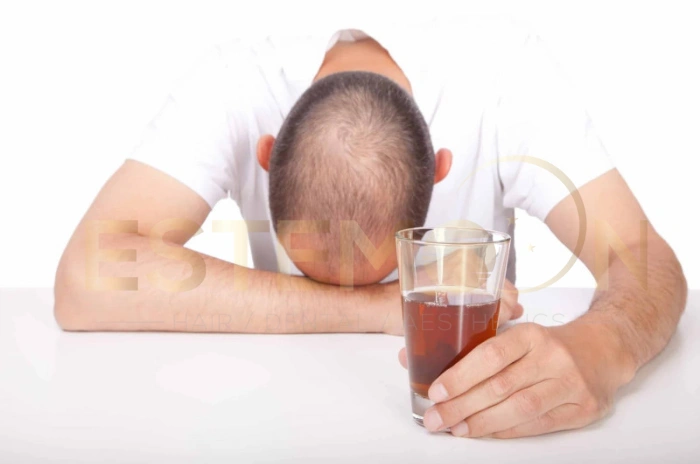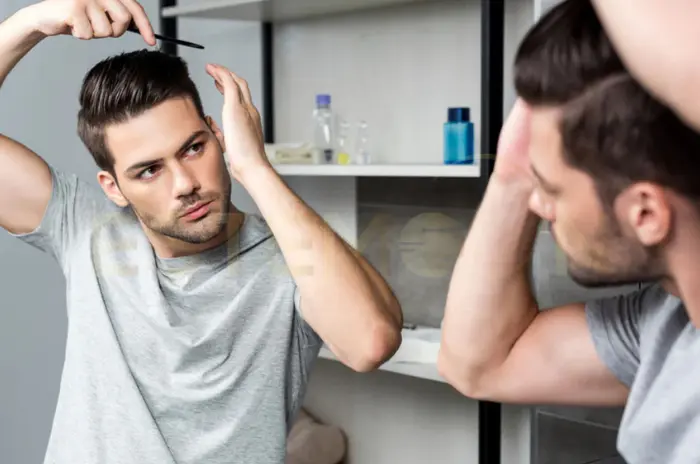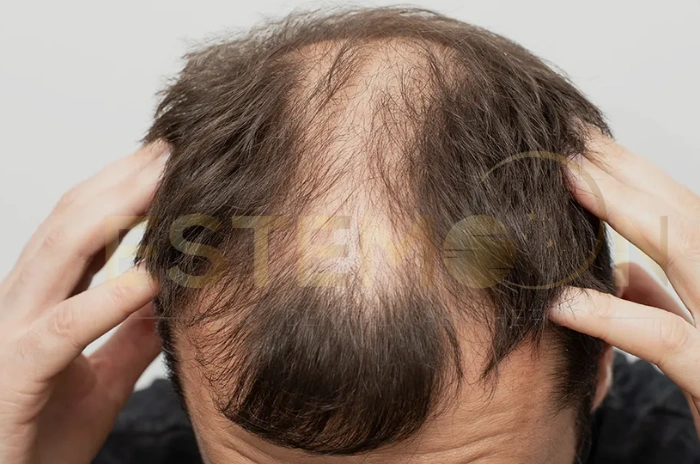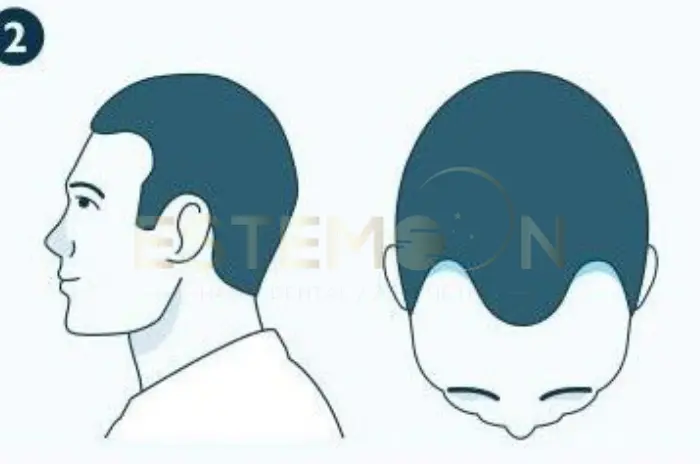Hair loss affects millions of people worldwide, with various factors contributing to this common concern. While genetics play a significant role, lifestyle choices like smoking and hair loss and alcohol and hair loss have gained attention in recent research. Understanding how these habits impact hair health can help you make informed decisions about your lifestyle and hair care routine.
Both smoking and excessive alcohol consumption can negatively affect hair growth through multiple mechanisms. These habits disrupt normal bodily functions, reduce nutrient absorption, and create conditions that are unfavorable for healthy hair development. The relationship between these lifestyle factors and hair health is complex, involving circulatory, nutritional, and hormonal changes.

How Does Alcohol Affect Hair Health?
Alcohol and hair thinning occurs through several interconnected pathways that compromise the hair growth cycle. When you consume alcohol regularly, your body prioritizes metabolizing the alcohol over other essential functions, including hair growth. This process depletes vital nutrients that are crucial for maintaining healthy hair follicles.
The primary way alcohol causes hair loss is through nutritional deficiencies. Alcohol interferes with the absorption of key vitamins and minerals, particularly B vitamins, zinc, and iron. These nutrients are essential for hair protein synthesis and follicle health. Without adequate nutrition, hair follicles enter a resting phase prematurely, leading to increased shedding and reduced hair density.
Dehydration is another significant factor in alcohol and hair loss. Alcohol acts as a diuretic, causing excessive water loss from the body. Since hair is approximately 25% water, chronic dehydration can make hair brittle, dry, and prone to breakage. This creates the appearance of thinning hair and can contribute to overall hair loss.
Alcohol and hair loss also involves hormonal disruptions. Excessive drinking can increase cortisol levels, creating chronic stress that pushes hair follicles into the telogen (resting) phase. Additionally, alcohol can affect testosterone levels and increase the production of dihydrotestosterone (DHT), a hormone strongly linked to pattern baldness.
Combined Effects of Smoking and Alcohol
When combined, smoking and hair loss alongside alcohol consumption create a particularly damaging environment for hair health. The synergistic effects of these habits accelerate hair loss and make recovery more challenging. Both substances contribute to poor circulation, which is fundamental to healthy hair growth.
Smoking hair loss occurs primarily through reduced blood flow to the scalp. Nicotine and other chemicals in cigarettes cause blood vessels to constrict, limiting the delivery of oxygen and nutrients to hair follicles. When combined with alcohol’s dehydrating effects, this creates an environment where hair follicles struggle to function optimally.
The combination also increases oxidative stress and hair loss significantly. Both smoking and alcohol generate free radicals that damage cellular structures, including those in hair follicles. This oxidative damage accelerates aging of the hair follicles and can lead to premature graying and hair loss.
| Factor | Smoking Effects | Alcohol Effects | Combined Impact |
|---|---|---|---|
| Blood Circulation | Severe reduction (60-70%) | Moderate reduction (30-40%) | Critical impairment (80%+) |
| Nutrient Absorption | Vitamin C, E depletion | B vitamins, zinc, iron loss | Multiple deficiencies |
| Recovery Time | 3-6 months | 2-4 months | 6-12 months |
| Hair Growth Rate | 50% slower | 30% slower | 70% slower |
Reduced blood flow to scalp from both habits compounds the problem. While smoking directly constricts blood vessels, alcohol can cause inflammation that further impairs circulation. Together, they create a perfect storm of poor scalp health that makes hair loss more likely and recovery more difficult.
Other Lifestyle Factors That Cause Hair Loss
Beyond smoking and hair loss and alcohol consumption, several other lifestyle factors contribute to hair loss. Stress is a major contributor, often causing telogen effluvium from smoking and drinking to be more severe. The relationship between hair loss due to stress vs. smoking shows that multiple factors work together.
Poor diet and nutritional deficiencies hair loss play crucial roles in hair health. When combined with smoking and alcohol use, these deficiencies become more pronounced and harder to correct. Sleep quality and exercise habits also influence hair health significantly.

How to Reverse Hair Loss from Smoking & Alcohol
The process of quitting smoking hair regrowth begins almost immediately after stopping tobacco use. Within weeks of quitting, circulation begins to improve, allowing better nutrient delivery to hair follicles. However, significant hair regrowth typically takes 3-6 months as the hair growth cycle resets.
How to stop hair loss from drinking involves both reducing alcohol consumption and addressing nutritional deficiencies. Cutting back on alcohol allows better nutrient absorption while reducing inflammation. Many people notice improvements in hair texture within a few months of moderating their alcohol intake.
Stop drinking hair loss recovery requires proper hydration, targeted supplements (particularly B vitamins, zinc, and biotin), and a nutrient-rich diet. The timeline for recovery varies depending on previous damage severity. Some notice improvements within weeks, while significant regrowth may take 6-12 months.
Can Smoking and Alcohol Affect Hair Transplant Results?
Smoking hair transplant compatibility is a significant concern for hair restoration surgeons. Most surgeons require patients to quit smoking at least 2-4 weeks before surgery and continue abstaining during recovery due to dramatically impacted healing.
The effects of smoking and hair loss extend to transplant healing because nicotine reduces blood flow to the scalp. This impaired circulation can lead to poor graft survival, delayed healing, and increased infection risk. Studies show smokers have significantly lower graft survival rates.
Alcohol hair transplant considerations are equally important. Excessive alcohol consumption can impair healing, increase bleeding risk, and interfere with medications. Most surgeons recommend avoiding alcohol for at least a week before surgery and during initial healing.
How to Prepare for a Hair Transplant If You Smoke or Drink Alcohol
Preparing for a hair transplant when you smoke or drink requires significant lifestyle modifications. The preparation period typically begins 4-6 weeks before surgery and continues through the recovery phase. This timeline allows the body to begin healing and improving circulation.
Smoking vs. alcohol: which is worse for hair? Both are problematic for transplant success, but smoking is generally considered more detrimental due to its direct effects on circulation and healing. However, addressing both habits provides the best outcomes for transplant success and overall hair health.
The preparation process should include nutritional support, hydration improvement, and stress management. Working with healthcare providers to develop a comprehensive plan increases the likelihood of successful outcomes. Some patients benefit from nicotine replacement therapy or alcohol cessation programs during this period.
Post-transplant care requires continued abstinence from smoking and moderation of alcohol consumption. The first few months after surgery are crucial for graft survival and optimal results. Patients who return to heavy smoking or drinking often experience disappointing outcomes.
FAQs About Do Smoking and Alcohol Cause Hair Loss?
How do smoking and alcohol affect hair?
Smoking and alcohol reduce blood flow to hair follicles, deplete essential nutrients, and increase oxidative stress, leading to weakened hair growth and increased hair loss.
Can quitting smoking help my hair grow?
Yes, quitting smoking hair regrowth typically begins within 3-6 months as improved circulation delivers more nutrients to hair follicles and reduces oxidative damage.
Will my hair grow back after drinking?
Stop drinking hair loss recovery is possible when alcohol consumption is reduced, allowing better nutrient absorption and improved overall hair health over time.
Do they affect a hair transplant?
Both smoking hair transplant and alcohol hair transplant outcomes are negatively affected due to impaired healing, reduced circulation, and increased complications during recovery.
Follow us on social media for updates, tips, and patient success stories:




